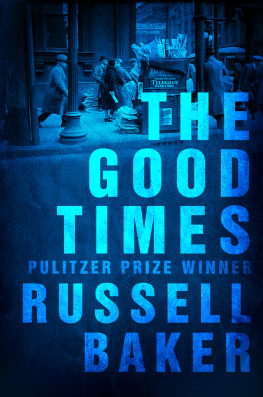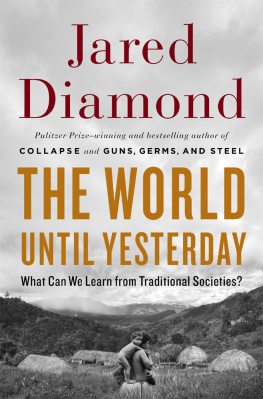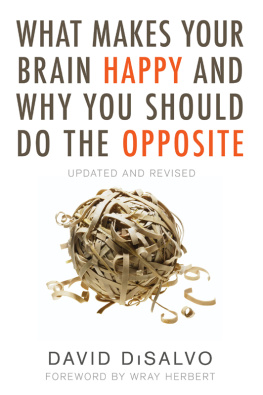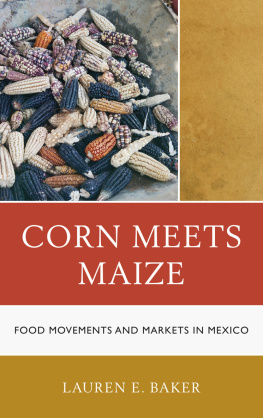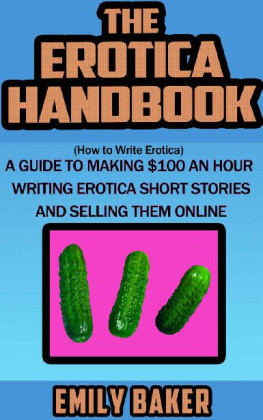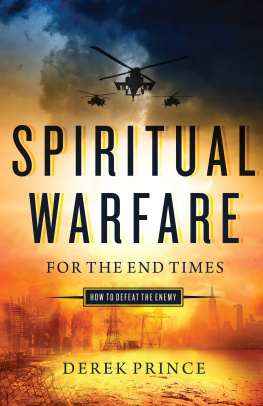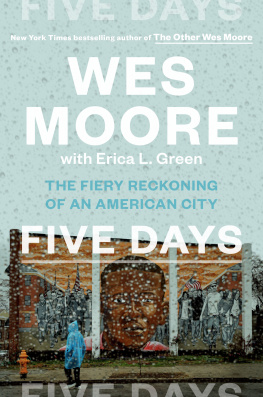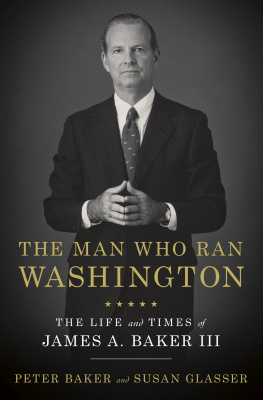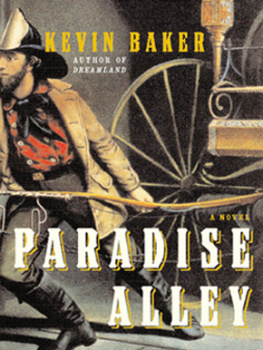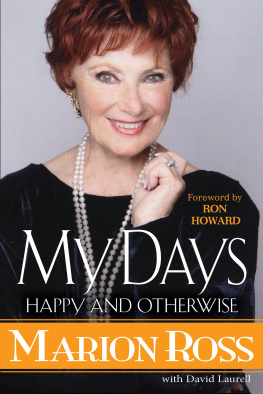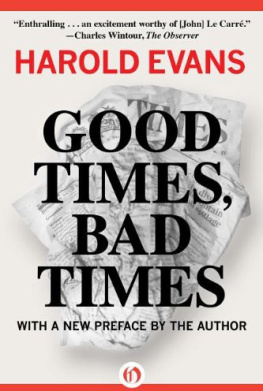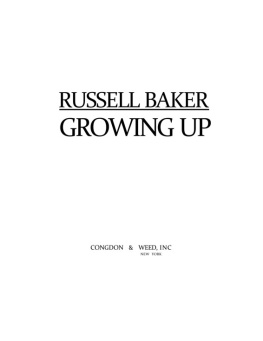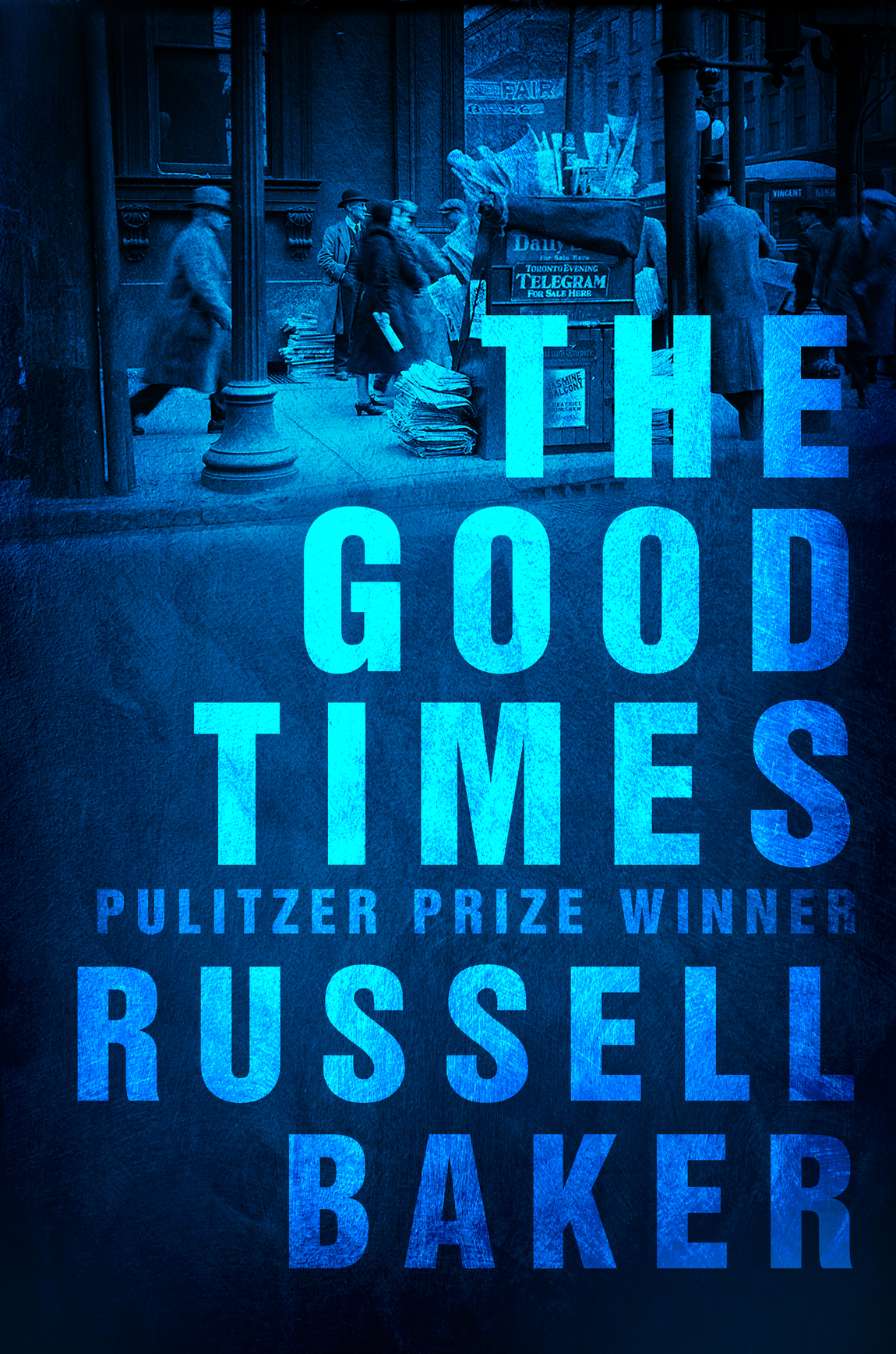At the age of twenty-two I believed myself to be unextinguishable.
SIEGFRIED SASSOON, Memoirs of a Fox-hunting Man
My mother, dead now to this world but still roaming free in my mind, wakes me some mornings before daybreak. If theres one thing I cant stand, its a quitter. I have heard her say that all my life. Now, lying in bed, coming awake in the dark, I feel the fury of her energy fighting the good-for-nothing idler within me who wants to go back to sleep instead of tackling the brave new day.
Silently I protest: I am not a child anymore. I have made something of myself. I am entitled to sleep late.
Russell, youve got no more gumption than a bump on a log. Dont you want to amount to something?
She has hounded me with these same battle cries since I was a boy in short pants back in the Depression.
Amount to something!
Make something of yourself!
Dont be a quitter!
On bad mornings, in the darkness, suspended between dreams and daybreak, with my mother racketing around in my head, I feel crushed by failure. I am a fool to think I amount to anything. A man doesnt amount to something because he has been successful at a third-rate career like journalism. It is evidence, thats all: evidence that if he buckled down and worked hard, he might some day do something really worth doing.
It has always been like this between my mother and me. In 1954 I was assigned to cover the White House. For most reporters, being White House correspondent was as close to heaven as you could get. I was then twenty-nine years old and getting the White House job so young puffed me up with pride. I went over to Baltimore to see my mothers delight while telling her about it. I should have known better.
Well, Russ, she said, if you work hard at this White House job you might be able to make something of yourself.
Onward and upward was the course she set. Small progress was no excuse for feeling satisfied with yourself. Our world was poor, tough, and mean. People who stopped to pat themselves on the back didnt last long. Even if you got to the top youd better not take it easy. The bigger they come, the harder they fall was one of the favorite maxims in her storehouse of folk wisdom.
Now, on bad mornings, I sense her anger at my contentment. Have a little ambition, Buddy. Youll never get anywhere in this world unless youve got ambition.
The civilized man of the world within me despises her incessant demands for success. He has read the philosophers and social critics. He is no longer a country boy, he has been to town. He scoffs at materialism and strivers after success. He thinks it is vulgar and unworthy to spend your life pursuing money, power, fame, and
Sometimes you act like youre not worth the powder and shot it would take to blow you up with.
and its not true that newspapering is a third-rate career. It has helped him to understand humanitys dreams and sorrows.
My God, Russell! You dont know any more about humanitys dreams and sorrows than a hog knows about holiday.
The mother-haunted son within me knows she is right. After all, he asks, what is a newspaperman? A peeper, an invader of privacy, a scandal peddler, a mischief-maker, a busybody, a man content to wear out his hams sitting in marble corridors waiting for important people to lie to him, a comic-strip intellectual, a human pomposity dilating on his constitutional duty, a drum thumper on a demagogues bandwagon, a member of the claque for this weeks fashion, part of next weeks goon squad that will destroy it.
She has no patience with talk like that, never did. One trouble with you, Russell, is you always overdo things, she said whenever I yielded to my newspapermans weakness for overstatement.
To her, newspapers were important and the work honorable. She had pushed me toward it almost from the start. She would have liked it better if I could have grown up to be president or a rich businessman, but much as she loved me, she did not deceive herself. Before I was out of grade school, she could see I lacked the gifts for either making millions or winning the love of crowds. After that she began nudging me toward working with words.
Words ran in her family. There seemed to be a word gene that passed down from her maternal grandfather. He was a schoolteacher before the Civil War in the Northern Neck of Virginia. His daughter Sallie became a schoolteacher, his daughter Lulie wrote poetry, and his son Charlie became New York correspondent for the Baltimore Herald. His granddaughter Lucy Elizabeth, who became my mother, was also a schoolteacher. Words ran in the family, all right. That was a rich inheritance in the turn-of-the-century South, still impoverished by the Civil War. Words were a way out. Look at Uncle Charlie. Words could take you all the way to New York City.
The most spectacular proof that words could be a gift of gold was my mothers first cousin Edwin. He was schoolteacher Sallies son, and when he first entered my life he was managing editor of The New York Times. Before that, he had been to Paris, had traveled all over Europe, had known General Black Jack Pershing in the First World War, and had been there at the airport outside Paris the night Charles Lindbergh, Lucky Lindy, landed The Spirit of St. Louis after flying solo across the Atlantic. Had not just been there, but had written about it in The New York Times, beginning his story with a three-word sentence: Lindbergh did it.
Cousin Edwin proved that words could take you to places so glorious and so far from the Virginia sticks that your own kin could only gape in wonder and envy. When my mother saw that I might have the word gift she started trying to make it grow. She was desperately poor, but she found money to buy me magazine subscriptions to Boys Life and American Boy, and later The Atlantic Monthly and Harpers. She signed up for a book deal that supplied one volume of Worlds Greatest Literature every month at a cost of thirty-nine cents a book. Poe, Hawthorne, Shakespeare, Thackeraythe full panoply of English literature piled up unread, but treasured, under my bed.
I respected those great writers, but at the age of ten, eleven, twelve, my heart did not sing when I opened them to read. What I read with joy were newspapers. I lapped up every word in newspaper accounts of monstrous crimes, dreadful accidents, and hideous butcheries committed in faraway wars. Accounts of murderers dying in the electric chair fascinated me, and I kept close track of last meals ordered by condemned men.

